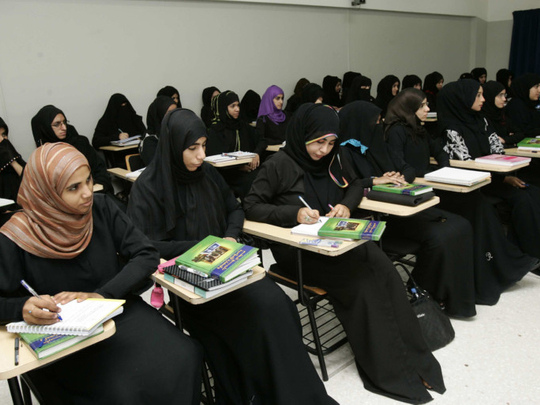
Many observers interested in lasting development in Gulf countries have been stressing the one important factor to achieve this goal — the need to invest in human capital. In fact, investment in this field is quite high but the outcome does not do justice to what has been spent in terms of money and efforts.
The results are not what had been envisaged. Some commentators have come to the sad and negative conclusion that “oil is preventing people from benefiting from education”.
Or, as a colleague put it, “Oil has deterred our youngsters from learning”. For instance, one can look at one of the stranger phenomenons appearing in our education system — the acquiring of fake PhDs.
A few weeks earlier, it was reported in a number of international papers and local dailies that 3,142 Gulf citizens had obtained phoney PhDs through a Pakistani firm, which arranged the degrees from a number of non-existent universities. The numbers might be ever more.
This is an alarming phenomena, although one not new and not exclusive to Gulf states. In fact, this is widely seen across the Arab world. Recently, it was reported that Saudi authorities brought to justice one foreigner who handled 16,000 fake PhDs! If one researched this subject on the internet, he would be surprised to see the extent of this business. In fact, I know a prominent person who suddenly has ‘Dr’ in front of his name, without having left town for a single day!
In the Arab world, this practice is driven by greed — for higher pay and social prestige in societies that respect titles — as well as a serious lack of scrutiny from the departments of education and government agencies. In Kuwait, for instance, the issue became political as some MPs looking for votes are defending the “right of citizens” holding PhDs to teach at higher educational institutions, although they know most of these degrees have been obtained through money rather than hard work. Some of the efforts by lawmakers have succeeded.
The calibre of teachers and professors
We must bear in mind that great efforts have been made by Gulf governments to enhance the education system. For example, the King Abdullah University of Science & Technology in Jeddah, though relatively new, scores well in global rankings.
Bahrain, Qatar and the UAE employ foreign experts in their higher education sectors to help advance their educational systems. Many branches of foreign universities have already been established in many Gulf states.
All that is good news. But the problem is that what matters at the end of the day is what kind of teachers and professors you have, and what kind of information, attitude and skills they offer.
From an experience of almost four decades in teaching, my answer is that they offer very little. This is because the training of teachers and instructors is very poor in general. The general environment does not support the pursuit of knowledge by students as employment, after graduation, is mostly granted by governments. To make things worse, most foreign teachers are paid far less than the locals, and put in more hours. So some of them seek supporting jobs in their spare time or take ‘special and private classes’. When you visit cafés in Kuwaiti suburbs, you can see ‘teaching groups’. Some even meet during school hours.
I am not saying that all youngsters in the Gulf are getting a poor education but many of them are — especially those in government schools. That’s why more than two-thirds of middle class Kuwaitis send their children for pre-university schooling to private institutions. If those with fake PhDs go to work in the bureaucracy, the harm they do is limited. But if they are forced by politicians into the educational system, it is not only a disaster but a sort of crime for a generation to come, and paves the way for extremism and future terrorism.
Mohammad AlRumaihi is a professor of political sociology at Kuwait University. You can follow him on Twitter at www.twitter.com/@rumaihi42









